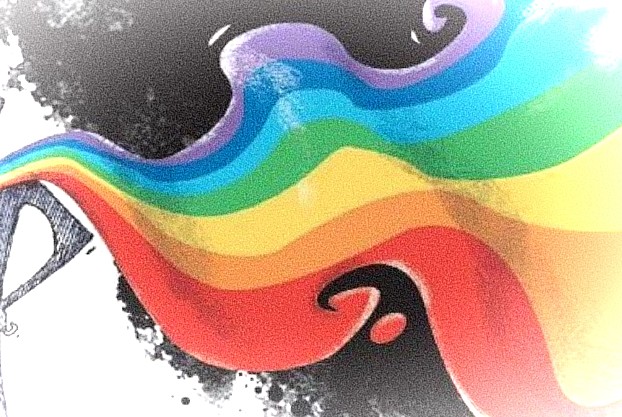When the Supreme Court of India read down Section 377 on September 6, 2018, it sparked a wave of ‘queer-friendly’ mental health services and organizations. While this marked a much-needed shift, it also raised an important question: Is being queer-friendly enough?
With studies showing that over 45% of LGBTQIA+ individuals in India experience mental health issues, the demand isn't just for friendly faces—it’s for affirming, informed, and intersectional care. While queer people face the same issues as everyone else.
While queer people face the same issues as everyone else such as depression, grief, loss of a loved one, etc, their lives have an added layer of unique stressors due to the societal perceptions and reactions to their sexual orientation and gender identity. LGBTQIA+ individuals are often subjected to bullying, discrimination, hostility, and physical and verbal abuse based on their sexual orientation and gender expression. Queer people either live in constant fear of dealing with the hostility and discrimination based on their gender and sexual identity, or shun their authenticity and stay in the closet to feel a sense of safety. This combination has a significant impact on the mental health of LGBTQIA+ individuals.
According to the report published by ICJ titled ‘Living with Dignity: Sexual Orientation and Gender Identity-based Human Rights Violation in Housing, Work, and Public Spaces in India, the decriminalization of homosexuality in India has not eradicated the prevalence of discrimination against the LGBTQIA+ community. The report highlights the obstacles faced by LGBTQIA+ individuals in accessing rental accommodation, harassment, and violence by landlords, families and arbitrary evictions, etc, and sets out instances of discrimination in workplaces at all stages of employment, and the roadblocks faced by Queer individuals while seeking access to public spaces, including discriminatory policing, gendered toilets and transport, harassment and abuse by state officials, and intentional and discriminatory targeting through the application of public nuisance, sex work, and anti-beggars laws. Due to the copious amounts of stress faced by queer people due to the blatant homophobia and transphobia that is entrenched into the fabric of Indian society, there is a dire need for specialized counselors who are trained in queer-affirmative counseling practices. A queer-affirmative therapist in India not only works to help their clients reach their mental health goals but also addresses their own internal biases and educates themselves on the myriad of LGBTQIA+ specific issues and terms to advocate for them both inside and outside the therapy room.
The fields of mental health and psychiatry have been particularly responsible for pathologizing genders and sexualities that fall outside the norm. People belonging to the LGBTQIA+ communities have been criminalized, incarcerated, or faced attempts of ‘cure’ through electroconvulsive therapy and other aversive therapies. Not only this, there have been various instances of surgical interventions including hysterectomy, castration, and more to ‘cure’ homosexuality, some of which continue to take place without the consent of young intersex individuals. For too long mental health practitioners have considered queer sexuality through the lens of heterosexuality. This is not only an incomplete, incorrect way of going about treating Queer clients but a prejudiced and uninformed approach which not only makes the process of therapy futile but can also magnify the issues.
Given how personal therapy is, queer clients must receive an informed and non-judgemental space to open up and talk about their grievances without the fear of retaliation, victim-blaming, or worse pathologization of their gender and sexuality. For a member of the LGBTQIA+ community, this would mean a queer-affirmative professional who uses an inclusive therapeutic lens to address their concerns. A service that is ‘queer-friendly’ might educate practitioners about the spectrum of queer identities, but it will not take into account the history of erasure and marginalization that LGBTQIA+ communities have faced in society. It will not help practitioners do the work to unlearn their biases and hold them accountable for their complicity in the historical pathologization and exclusion of queer identities from therapeutic spaces. Most importantly, ‘queer-friendly’ counselors are not going to be equipped to respond to the needs of queer clients by incorporating the issues and stressors inherent in living on the margins of a cis-gendered and heterosexual world. Due to the unique challenges faced by queer clients, a queer affirmative therapist in India not only needs to be trained to identify and understand these crucial details but also in recognizing how affirming these struggles and placing distress in the socio-political contexts and not just in biology or faulty-thinking patterns can help create a safe space for queer individuals where they can tackle their mental-health struggles and feel understood and supported.
One such organization that is working tirelessly to create a safe space for queer individuals where they can tackle their mental-health struggles and feel understood and supported, is Another Light Counselling. This is a mental health organization founded by Aanchal Narang, a psychologist based in Mumbai, that specializes in trauma, gender, sexuality, addiction, and kink-affirmative therapy. Counselors at Another Light Counselling are trained to use a queer-coded and trauma-informed lens to provide quality mental health care to their clients. Not only are they trained to participate in self-reflection to shed their biases and heteronormative thought patterns, but they are also trained to find out the needs of their queer clients, give LGBTQ people a voice, and after listening and understanding their needs, advocate for their behalf.

